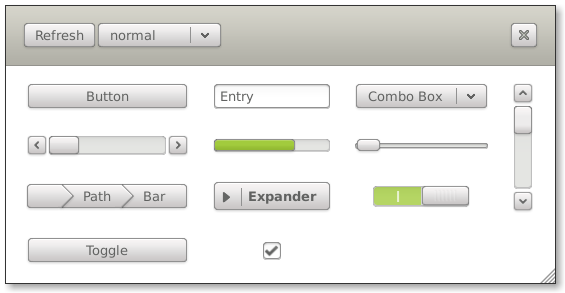[…]
Or were you looking for some particular behaviors, or style of interface?
Or were you looking for a specific language?
Or a mixture?
What was it that dissuaded you from the already existing libraries?
My wish would be to use native widgets on both iOS and Android. On the rest
of OSs, I use wxWidgets, which provides native widgets. I cannot use
wxWidgets for iOS and Android because such ports are still on development.
So, for iOS and Android I have plain vanilla SDL, but no GUI.
My languages are C++ and C. So, whatever I use must have C++ (or C)
bindings.
Regarding what dissuaded me from the libraries I found at the official page
is that I automatically discard LGPL (because I often need static linking),
and the BSD/MIT licensed ones are either broken links, or non-professional
looking widgets.
What would I consider professional-looking? Well, a widget set that when
you see it on an Android or iOS tablet could look like if it was an app
designed by any first-class software company.
For example: This looks professional for my standards:

…but unfortunately Clutter is LGPL as far as I know…
…regarding the libRocket suggestion by Scott, the GUI shown on the videos
looks nice, but I’m not into web technologies, and most of the stuff I read
there sounds like alien language to me…
And about Qt… I think it’s overkill, because I aim at minimum CPU use
(the processor/gpu time must go to my apps, not to the gui, and Qt is a
big, big monster…)
If you still don’t know what I’m looking for, I believe something simple
like GLUI (http://www.cs.unc.edu/~rademach/glui/) would be great if it
weren’t LGPL and if it didn’t look like Windows95 instead of a more modern
GUI like Clutter.
Hope this clarifies things a bit…
Thanks a lot!!
ardiOn Sat, Aug 18, 2012 at 5:37 AM, Jared Maddox wrote:
